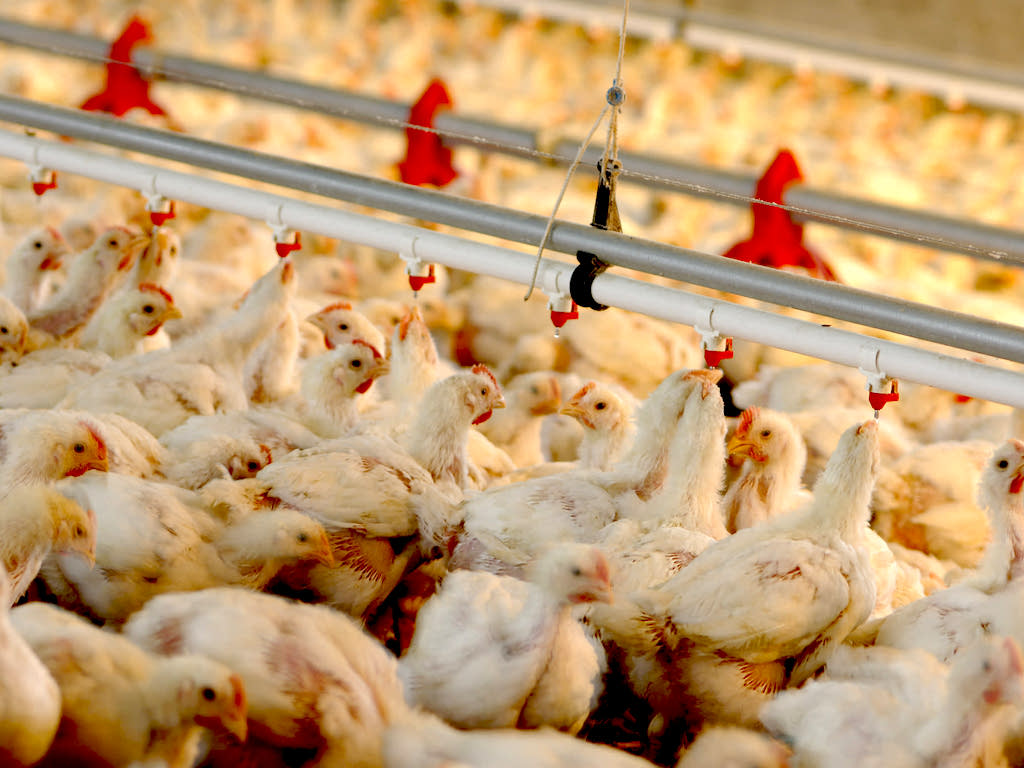Leading Voices Pen Letter To Global Banks: Stop Funding Factory Farming To Prevent More Pandemics
3 Mins Read
The world’s leading environmentalists and experts including Jane Goodall and Stanley Johnson, the British prime minister’s father, have called on financial giants to stop lending money to the animal agriculture industry. In an open letter, the group says that factory farming is posing huge health threats to the world, including the risk of future zoonotic pandemics, antibiotic resistance as well as global food insecurity and climate change.
To prevent future health disasters and protect the planet, the world’s biggest financial firms and banks must end funding for intensive animal agriculture operations, say a group of nearly 100 campaigners. The letter was addressed to the International Monetary Fund (IMF), the World Bank, and 20 other banking giants, including JP Morgan Chase, Morgan Stanley, Standard Chartered, HSBC, Bank of America, Deutsche Bank and Credit Suisse.
According to a report by nonprofit Feedback, an organisation advocating for food system changes, more than US$478 billion in financing from over 2,500 financial institutions have been poured into meat and dairy companies worldwide in just the past five years alone.
Among the signatories include renowned environmentalist Jane Goodall, who has previously spoken out on humanity’s need to reflect on our relationship with nature in order to avoid even deadlier pandemics, food policy professor Tim Lang of City University London, actress Joanna Lumley and Stanley Johnson, the father of the Conservative prime minister Boris Johnson. Other notable members of the group include Bill McKibben, the environmental journalist and leader of the climate campaign group 350.org and classical pianist, composer and writer Stephen Hough CBE.
We also urge major financial institutions not to fund or invest in such production. This is essential to minimise the risk of future pandemics. It is also necessary if we are to tackle climate change, biodiversity loss, deforestation, water pollution and antimicrobial resistance.
Read: Preventing another pandemic – the link between coronavirus and livestock farming
Calling the current coronavirus pandemic a wake-up call to reshape the way we feed the planet, the letter urges intergovernmental organisations to acknowledge the necessity of a more resilient food system that moves away from livestock production and industrial agriculture.
“We also urge major financial institutions not to fund or invest in such production. This is essential to minimise the risk of future pandemics. It is also necessary if we are to tackle climate change, biodiversity loss, deforestation, water pollution and antimicrobial resistance,” the letter reads.
A recent report from the United Nations has underlined the risks that animal agriculture poses, citing industrial factory farming and the world’s hunger for animal protein as two of the top seven drivers of emerging zoonotic pandemics.
The 94 signatories of the recent letter also emphasised the solutions that are available to help the world transition into a safer, healthier and sustainable food system, including moving to regenerative forms of agriculture and “health-oriented systems for rearing animals in which good health is integral to the farming method rather than being propped up by routine use of antibiotics.”
Similar calls have been made by other members of the scientific community, including David O. Wiebers, MD., emeritus professor at the Mayo Clinic and Valery Feigin, neuroscience professor at Auckland University of Technology. In a recent paper, the experts said “intensive confinement of animals in factory farm operations should be discontinued worldwide for the sake of animals, humans, and the environment.”
“We should rapidly evolve to eating other forms of protein that are safer for humans, including plant-based meat alternatives and cultured meat,” Wiebers and Feigin added.
Lead image courtesy of Betagro Group.




